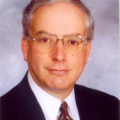On Sunday, February 16, the Nanaimo (B.C.) Clippers edged the Prince George Cougars, 3-2, on a hotly disputed goal in the final moments of a hard-fought double-overtime pee wee hockey tournament game in Winnipeg, Manitoba. The victory moved the Tier I Clippers into fifth place in the 43rd annual Vernon Coca-Cola Invitational.

Controversy began with fourteen seconds remaining in the second overtime period, when the scoreboard clock malfunctioned on a faceoff in the Clippers' end and did not begin running for about seven seconds. The Clippers took the puck up ice and scored. The referee allowed the goal because he ruled that the team would have had time to score even if the clock had run properly.
The referee and the tournament director rejected the Cougars coaches' vehement arguments, and then something unusual happened. The coaches ordered the team immediately to the locker room without receiving their plaques, and without going through the traditional handshake line to congratulate the winners, a snub that one letter writer called "the worst form of poor sportsmanship known in hockey circles."
Every Cougar complied except 12-year-old defenseman Matthew Marotta, who shook his head when his head coach called him to leave the ice with the rest of the team. Matthew remained on the ice alone, waited at the blue line, and shook hands with each Clipper before proceeding to the locker room. The crowd cheered Matthew's spontaneous gesture, and the Clippers players showed their respect by gathering to congratulate him. According to one Clippers parent, the team "surrounded him . . . just like he scored the game-winning goal."
A One-Boy Handshake Line
The Clippers pee wees, and the adults who saw Matthew's gesture or read about it when the story went viral, probably understood his courage. Moments later, he had to return to the Cougars' locker room and face his team. Standing apart from coaches and teammates can be challenging for any athlete, and certainly for one who has not yet reached his teen years, because separation contradicts every instinct of team unity. Following the group is much easier, particularly when instructions come from authority figures such as coaches.
Matthew taught a sportsmanship lesson to both teams' players, the cheering adult crowd, and readers elsewhere. No one who attended the Vernon Coca-Cola Invitational Tournament, and no one who watches Stanley Cup action, had probably ever seen a one-man (or one-boy) handshake line. In 42 years as a youth hockey coach in the United States, I never saw one.
"Losing Is Really Tough"
Losing can be a bitter pill to swallow. Losing a close game can be even more bitter. Losing in the last seconds on a disputed call can be the most bitter of all. But each of these outcomes comes with playing sports. Every day of every season, half the teams playing organized games lose, and losing often stings.
When I explained the symbolism of the handshake line to my own youth hockey teams before our opening game each season, I would paraphrase Olympic gold medal swimmer Amy Van Dyken. "The most important lesson I've learned from sports," she says, "is how to be not only a gracious winner, but a good loser as well. Not everyone wins all the time; as a matter of fact, no one wins all the time. Winning is the easy part; losing is really tough. But, you learn more from one loss than you do from a million wins. You learn a lot about sportsmanship."
"It's really tough to shake the hand of someone who just beat you," Van Dyken explains, "and it's even harder to do it with a smile. If you can learn to do this and push through that pain, you will remember what that moment is like the next time you win and have a better sense of how those competitors around you feel. This experience will teach you a lot on and off the field."
When Players Teach
Youth sports is at its best when the teachers - the role models - are the adults, and not the players. Sometimes, however, a youth leaguer like Matthew Marotta can teach their peers and elders a thing or two.
Matthew evidently taught well because, within days, the Cougars head coach acknowledged that he had tarnished his unblemished record. "I made a mistake. All I can do is own what happened, learn from it and move forward, and that's what I'm prepared to do," he said. In youth sports as elsewhere, the most enduring lessons often come from acts rather than words.
A special thanks to Steve Stenersen, President and CEO of US Lacrosse, for bringing this story to my attention.
Sources: Charlotte Helston, "A Hockey Moment This Crowd Won't Soon Forget." http://infotel.ca/newsitem/A-hockey-moment-this-crowd-wont-soon-forget/I... (Feb. 21, 2014); Jason Peters, "Pee Wee Player Shows Adults How to Behave." Prince George Citizen, Feb. 21, 2014; "Pee Wees Win, Sportsmanship Reigns." Nanaimo News Bulletin. Feb. 25, 2014; "Incident at Minor Hockey Tournament Leads to Coaching Suspension for Mountie Involved in Fatal Shooting." The Province. Feb. 25, 2014; Ted Clarke, "Pee Wee Coach Admits Mistake Was Made." Prince George Citizen, Feb. 21, 2014.



















